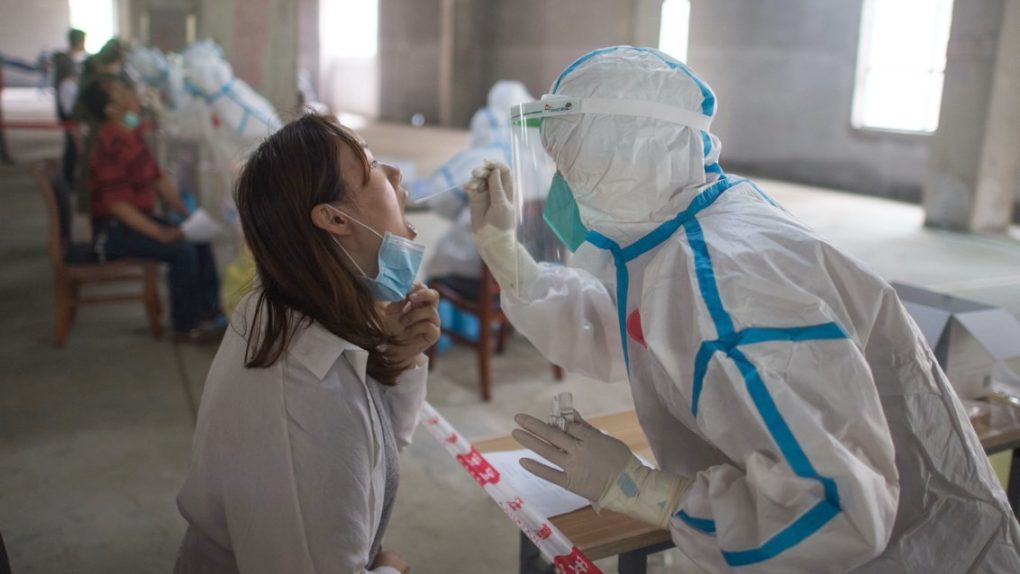- The new coronavirus outbreak in Beijing is “extremely severe,” according to local authorities, as more than 100 cases have been confirmed in five days.
- Beijing has taken additional measures to contain the spread, restricting movement in certain districts, closing schools, and stopping sporting and entertainment events.
- China believes the new coronavirus strain is similar to the one seen in Europe and the US, with a theory saying it may have come via salmon imports.
China is struggling with what may turn out to be the most important coronavirus outbreak after Wuhan — the Beijing cluster that was discovered last week. A man with a fever checked into a local clinic where he was diagnosed with the virus. This was Beijing’s first COVID-19 case in more than 50 days and an especially troubling one. The man could not explain where he got the infection from, as he did not travel outside of China, and he had not been in contact with anyone returning from abroad. The case told officials the virus was already spreading inside Beijing communities, and they scrambled to find more sick people and stop the transmission.
Beijing authorities closed the Xinfadi market and placed districts under lockdown as it began a widespread testing campaign. As of Monday, there were 79 COVID-19 cases in the capital region. The number shot up to 106 after 27 other cases were reported on Tuesday. Authorities described the Beijing outbreak as “extremely severe,” implementing other measures meant to reduce the transmission risk.
More neighborhoods were fenced off on Tuesday, The Guardian reports, with security checkpoints placed at residential compounds. High-risk contacts are now being prevented from leaving the city, as more than 20 neighborhoods in the capital have been designated medium risks. Officials will perform temperature checks, restrict the movement of people and cars, and deliver food and medicine to quarantined people.
“The epidemic situation in the capital is extremely severe,” Beijing city spokesman Xu Hejian said in a press conference. “Right now we have to take strict measures to stop the spread of Covid-19.”
Other measures include the closure of schools and transport suspensions. Ride-sharing and taxi services have also been halted. All indoor sport and entertainment venues were closed on Monday. Paradoxically, authorities have tried to limit lockdowns to parts of the city, per The Guardian. People living in other districts are encouraged to continue “life as normal,” but take extra precautions.
Other provinces have instated quarantine rules for people coming from Beijing, including Shanghai. Long-distance bus routes that connect the capital to other provinces were suspended.
Chinese authorities say the virus may have originated from abroad, and they’re suggesting it may have come via imported salmon. Samples of the virus were found on a chopping board in the now-closed market, but experts say that fish is unlikely to carry the disease and think the results can be explained by cross-contamination.
The World Health Organization (WHO) said it expects China to produce the genome of the virus in Beijing, and that the imported salmon was not “the primary hypothesis.” Beijing asked Canada to investigate parasites found in shipments of the fish, and halted salmon imports from Norway.
The virus strain infecting Beijing residents appears to be more contagious than the one in the Wuhan outbreak, according to a deputy director of the infamous pathogen biology department at Wuhan University.
Wu Zunyou, chief epidemiologist at the Chinese Centre for Disease Control and Prevention, told local media that the virus is similar to strains from Europe, Russia, and the US. “It clearly indicates the virus strain is different from what it was two months ago,” he told CGTN. “The virus strain is the major epidemic strain in European countries. So it is from outside China brought to Beijing.”
Recent research does indicate the virus has mutated to become more infectious than the first version, but that doesn’t make it any more lethal than before.








